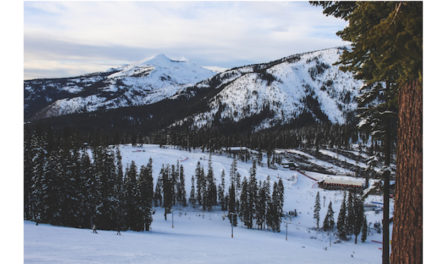- How to Keep Tahoe Bears Wild While Camping - 07/15/2024
- BADWATER 135 Ultramarathon: World’s Toughest Foot Race - 07/13/2024
- Wildflower Season In California Parks - 03/07/2024
USDA Invests $150M to Connect Underserved and Small Acreage Forest Landowners to Emerging Climate Markets as part of Investing in America Agenda
Agriculture Secretary Tom Vilsack announced last week that the U.S. Department of Agriculture’s Forest Service is making $150 million from President Biden’s Inflation Reduction Act, the largest climate investment in history, available to help underserved and small acreage forest landowners connect to emerging voluntary climate markets.
These markets can provide economic opportunities for landowners and incentivize improved forest health and management. Secretary Vilsack announced the funding opportunity at the Sustainable Forestry and African American Land Retention Conference on the heels of the one-year anniversary of the Inflation Reduction Act. This builds on investments in the President’s Bipartisan Infrastructure Law for forest health treatments, including through the creation of competitive grants to non-Federal forest landowners.
Forests are powerful tools in the fight against climate change, and emerging voluntary private-sector markets are now creating economic incentives to keep forests healthy and productive through reforestation, improved forest management, and other sustainable practices. However, high acreage requirements and prohibitive start-up costs have caused many small-acreage and underserved private forest owners to be left behind. The investments being announced today will expand access to markets that were previously out-of-reach, allowing underserved and small-acreage forest landowners to address climate change while also supporting rural economies, maintaining land ownership for future generations, and protecting private forestlands from increasing development pressure.
“Healthy, resilient forests store carbon, provide critical habitat for wildlife, and grow forest resources that are the lifeblood of communities across the country,” said Secretary Vilsack. “So much of our nation’s forest land is privately owned, and, thanks to historic resources made possible by President Biden’s Investing in America agenda, these private landowners will have an opportunity to be part of the solution to the climate crisis, no matter their background and no matter their means.”
“Working forests are the cornerstone of local economies and play a key role in mitigating the effects of climate change,” said Forest Service Chief Randy Moore. “As private forest landowners face increasing pressures to convert their forests to other uses, we are helping underserved and small acreage landowners to access new economic opportunities to ensure working forests remain intact. Without financial incentives, underserved and small-acreage landowners may not have the resources to manage forests for long-term health and resilience. Without proper management, forests are more susceptible to pest, disease, catastrophic wildfire, loss of wildlife habitat, and reduced water quality for downstream users.”
Without financial incentives, underserved and small-acreage landowners may not have the resources to manage forests for long-term health and resilience. Without proper management, forests are more susceptible to pest, disease, catastrophic wildfire, loss of wildlife habitat, and reduced water quality for downstream users.
The Inflation Reduction Act is the largest investment in climate action and resilience in history. The law is part of the Biden-Harris Investing in America agenda to grow the American economy from the middle out and bottom-up up by rebuilding our nation’s infrastructure, driving more than $500 billion in private sector manufacturing investments, creating good-paying jobs, and building a clean energy economy to tackle the climate crisis and make our communities more resilient.
The Inflation Reduction Act also advances President Biden’s Justice40 Initiative, which sets a goal of delivering 40% of the overall benefits of federal climate, clean energy, and other investments to disadvantaged communities that are marginalized and overburdened by pollution and underinvestment.
Eligible entities include Tribal governments and organizations, states, local governments, public and private non-profits, and for-profit entities. Please see the Notice of Funding Opportunities (NOFO) for details on eligibility, deadlines, and proposal requirements for the first phase of the Forest Service’s new Landowner Support for Forest Resilience Program, funded by the Inflation Reduction Act.
The USDA Forest Service anticipates future funding opportunities, including one specifically targeted to engage tribal nations.
MAIN IMAGE: Photo by Milk-Tea on Unsplash
Read More News Here













